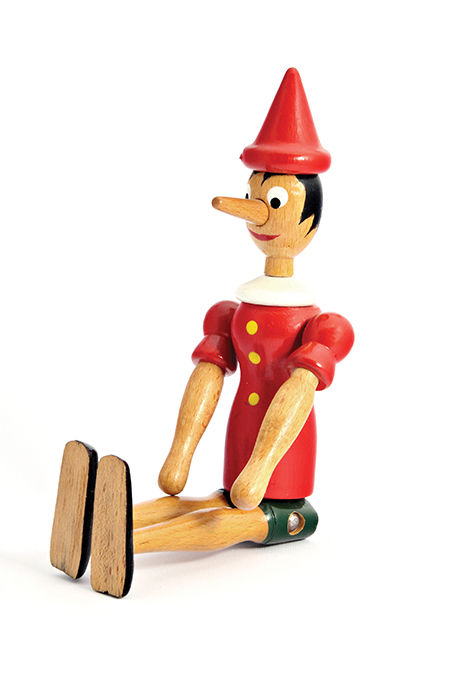There is a somewhat defendable historical legend that when Lord Cornwallis ordered the striking of the English colors and the surrender of his army to the rabble of the American Continental Army on Oct. 19, 1781, he ordered the British Army band to play a song called “The World Turned Upside Down.”
Whether this happened is not as important as the emphasis it gives to the historical fact that, for the 18th century Western world, things would never be the same.
Today, we are seeing similar shifts in the culture through television programming — equally topsy turvy to the extent that the lyrics to this old song have a new pertinence.
Let me save you some DVR memory space: If there is a television sitcom starring a child, then the child will more than likely be in the adult role. The adult, usually a hapless father, will be much more childlike than his son or daughter.
On the show “Modern Family,” the real estate agent dad is constantly being mocked, corrected or guided by his wife, his two daughters or his son, and he exists in a kind of suspended animation of adolescence.
On “Big Bang Theory,” there are no children, yet the adults haunt comic book stores, play endless hours of video games and wear T-shirts with their favorite super heroes on them. They eschew all adult “trappings” like commitment, children and sacrifice.
I know it’s a comedy and maybe I should just loosen up. When you get past the cheap sex joke every 11 seconds, it can be funny. Yet, while one of the characters recently got married, his infantile relationship with his off-screen mother and the juvenile aperture from which he views life means he remains very much a man-child, with the emphasis on child.
A friend of mine once remarked how we, meaning the tail end of the baby boomer generation, were the last generation to live separate lives as children. There was a “kid’s” table at Christmas and at the Sunday dinner table children were cautioned to be seen but not heard.
We kind of liked it that way. We had our own table with our own rules and managed to take care of disagreements. We defined the rules to capture the flag without adult interference and I think the adults were kind of happy to have us out of the house arguing over the rubrics of our games rather than in the house.
No more though. We arrange “play dates” for our kids, we organize their sports to the extreme and even reality TV reflects this ever blending of the adult with the child world. On the show “Master Chef,” where famously loud and profane chef Gordon Ramsey and two other tough as nails celebrity chefs put would-be “chefs” through their paces in a multi-part competition, the contestants competing are children.
If you watch five seconds of the show where the children all maintain an affectation of adroitness that is unsettling, you can almost picture the legions of handlers, managers, stage mothers and stage fathers who have coached every ounce of childhood out of these kids. And in the end they really aren’t acting like adults at all, but acting like children trying to act like adults.
When I was growing up, movies and TV used to be primarily for adults. If there was a kid prominently featured, like Ron Howard as Opie Taylor in the Andy Griffith Show, you could bet your last three empty Coke bottles you were planning on taking back to the store for the deposit that there was an adult lurking about to either instruct him or guide him through some kind of trouble his childishness got him into.
Now even Disney animated characters have gotten into the act. Ariel in “The Little Mermaid” instructs her father in how to not be a human-phobe and all the young characters in all the Disney movies are urged to follow their heart — quite a contrast to Pinocchio, who gets in trouble when he doesn’t follow his conscious. (Who would have thought that a 1940s cartoon would have the Catholic concept of an informed conscious so beautifully displayed in it?)
Pinocchio gets out of trouble through the efforts and striving of his “father” — who acts like a man, not a child. These acts of love and Pinocchio’s understanding of his faults turn him into a real boy.
We’re supposed to go through stages in life, or at least we used to. But television is giving us this brave new upside down world and children are the poorer for it.
As that famous television commentator from Tarsus once mused, “When I was a child, I spoke like a child, I reasoned like a child; when I became a man, I gave up childish ways.” (Corinthians 13:11).

